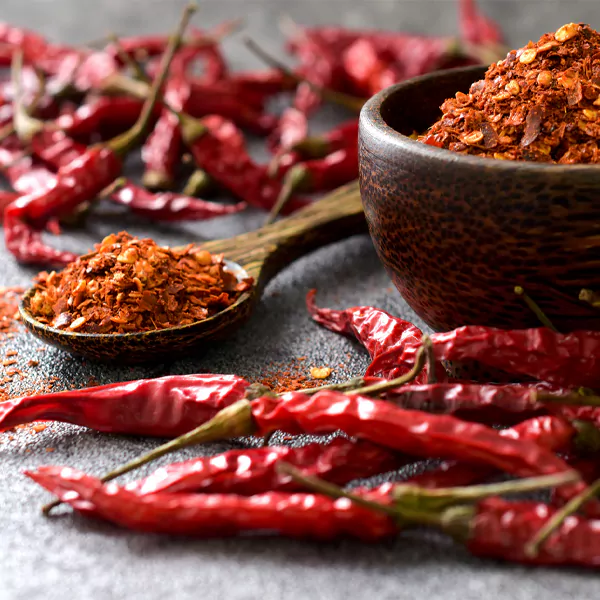Chilli peppers have been a staple in cuisines worldwide, adding spice, flavor, and a touch of heat to dishes. Beyond their culinary applications, chillies are celebrated for their numerous health benefits, which make them more than just a flavorful ingredient. But is chilli truly good for you? Let’s delve into the nutritional value, health benefits, and potential drawbacks of consuming chillies.
Nutritional Value and Health Benefits of Chilli
Chillies are nutrient-rich and low in calories, making them a great addition to a balanced diet. They are packed with vitamin C, which strengthens the immune system, and vitamin A, which supports vision and skin health. Minerals like potassium and magnesium further enhance their nutritional value. However, the real star is capsaicin, the compound that gives chilli its heat and is responsible for many health benefits.
Capsaicin boosts metabolism by inducing thermogenesis, helping the body burn calories more efficiently, which aids weight management. It also improves heart health by lowering cholesterol levels, promoting blood flow, and reducing arterial inflammation. Chillies are rich in antioxidants, such as beta-carotene and flavonoids, which combat free radicals and lower the risk of chronic diseases.
Additionally, chillies are known for their pain-relieving properties. Capsaicin is a key ingredient in topical creams used for conditions like arthritis and muscle pain. It desensitizes nerves, reducing discomfort. Eating chillies can also improve mood by triggering the release of endorphins, the body’s natural “feel-good” hormones, which help alleviate stress and promote well-being.
Potential Risks of Consuming Chilli
While chillies offer many health benefits, excessive consumption can cause discomfort and health issues for some individuals. Overeating chillies may irritate the stomach lining, leading to symptoms like heartburn, acid reflux, or stomach pain. People with gastrointestinal conditions, such as ulcers or irritable bowel syndrome (IBS), should limit their intake to avoid aggravating their symptoms.
Some individuals may experience allergic reactions to capsaicin, resulting in skin irritation or swelling. Moreover, not everyone can tolerate the heat of chillies. For those unaccustomed to spicy foods, overconsumption may lead to a burning sensation in the mouth and digestive tract. Pregnant women and children are advised to consume chillies in moderation to prevent discomfort.
How to Incorporate Chilli into Your Diet
Chillies are incredibly versatile and can be used fresh, dried, or in paste form. Here are some simple ways to add them to your meals:
- Fresh Chillies: Add chopped chillies to stir-fries, soups, or salads for a fresh, spicy kick.
- Chilli Powder or Flakes: Use these to season curries, stews, or grilled meats for even heat distribution.
- Chilli Paste or Oil: Ideal for drizzling over noodles, pizzas, or roasted vegetables to enhance flavor.
- Snacks: Sprinkle chilli powder on nuts, popcorn, or chips for a spicy snack option.
For those who love experimenting, try making homemade chilli sauces or infusions for a personalized touch. These options allow you to control the level of spiciness while enjoying chilli’s health benefits.
Chilli in Traditional Medicine and Culture
Chillies have been used for centuries in traditional medicine. In Ayurveda, they are believed to improve digestion, detoxify the body, and enhance circulation. Similarly, Traditional Chinese Medicine recommends chillies for their warming properties and ability to stimulate the digestive system. Capsaicin’s anti-inflammatory and pain-relieving qualities make it a valuable component in natural remedies.
Culturally, chillies hold significant importance in cuisines worldwide. In Mexico, they are integral to salsas and mole sauces. In India, they spice up curries and chutneys. In Asian countries like Thailand and China, chillies bring bold flavors to stir-fries and soups. African cuisines also feature chillies prominently in stews and marinades. Their global popularity underscores their versatility and cultural significance.
Conclusion
So, is chilli good for you? The answer is yes, provided it’s consumed in moderation. Chillies offer numerous health benefits, from boosting metabolism and improving heart health to providing antioxidants and relieving pain. They add not only heat but also essential nutrients to your diet. However, overconsumption may lead to adverse effects, especially for those with sensitivities or existing digestive issues.
By incorporating chillies thoughtfully into your meals, you can enjoy their vibrant flavors and health-promoting properties. Whether you prefer them fresh, dried, or as a paste, chillies are a versatile and beneficial addition to a healthy lifestyle.

